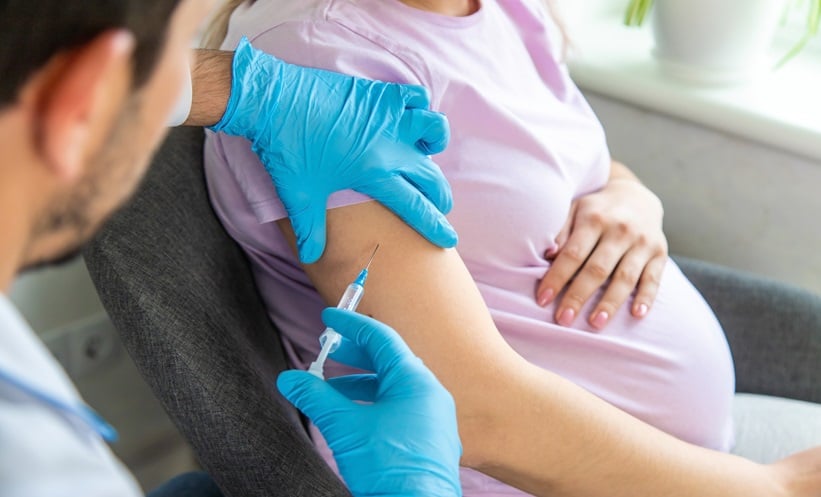RESPIRATORY Syncytial Virus (RSV) is a major cause of illness and mortality in newborns and infants, leading to significant respiratory complications. In September 2023, a bivalent RSVpreF vaccine was approved for use in pregnant women to enhance neonatal immunity. The vaccine is intended to be administered between 32+0 and 36+6 weeks of gestation, a narrower timeframe than the 24–36 week window evaluated in clinical trials, due to concerns about a possible link between preterm birth and early vaccine administration. While the approved timing window was established to prioritise safety, it remains unclear how specific timing within this window influences the transfer of protective antibodies from the mother to the foetus, an area critical to informing clinical practices.
To investigate this, a prospective cohort study was conducted from September 2023–March 2024 across two academic medical centres, enrolling 124 pregnant individuals who received the RSV vaccine. The study aimed to evaluate how gestational age at the time of vaccination and the time elapsed until delivery impacted antibody levels in the newborn, measured in both umbilical cord blood at birth and in infants’ blood at two months. Additionally, the study compared antibody levels generated through maternal vaccination with those from natural RSV infection. Blood samples were collected from 20 maternal and cord dyads with naturally acquired RSV antibodies as a benchmark.
The results showed that RSV vaccination led to significantly higher levels of anti-RSV F antibodies in both maternal and cord blood compared to levels achieved through natural infection. Specifically, the maternal blood antibody level in vaccinated mothers was 5.72 log10MFI, with a cord blood level of 5.81 log10MFI, compared to 4.82 and 5.03 log10MFI in naturally infected pairs. Timing, however, was found to be critical. When the RSV vaccine was administered two to four weeks before delivery, the cord-to-maternal antibody transfer ratios were lower than when vaccination occurred at least five weeks before delivery.
This trend indicates that earlier vaccination within the 32–36 week window enhances transplacental antibody transfer, maximising immunity in the neonate and these findings highlight the importance of optimising vaccination timing to provide the best possible protection for infants.
Reference
Jasset, O. J et al. Enhanced placental antibody transfer efficiency with longer interval between maternal RSV vaccination and birth. Am J Obstet Gynec. 2024;DOI:10.1016/j.ajog.2024.10.053.






